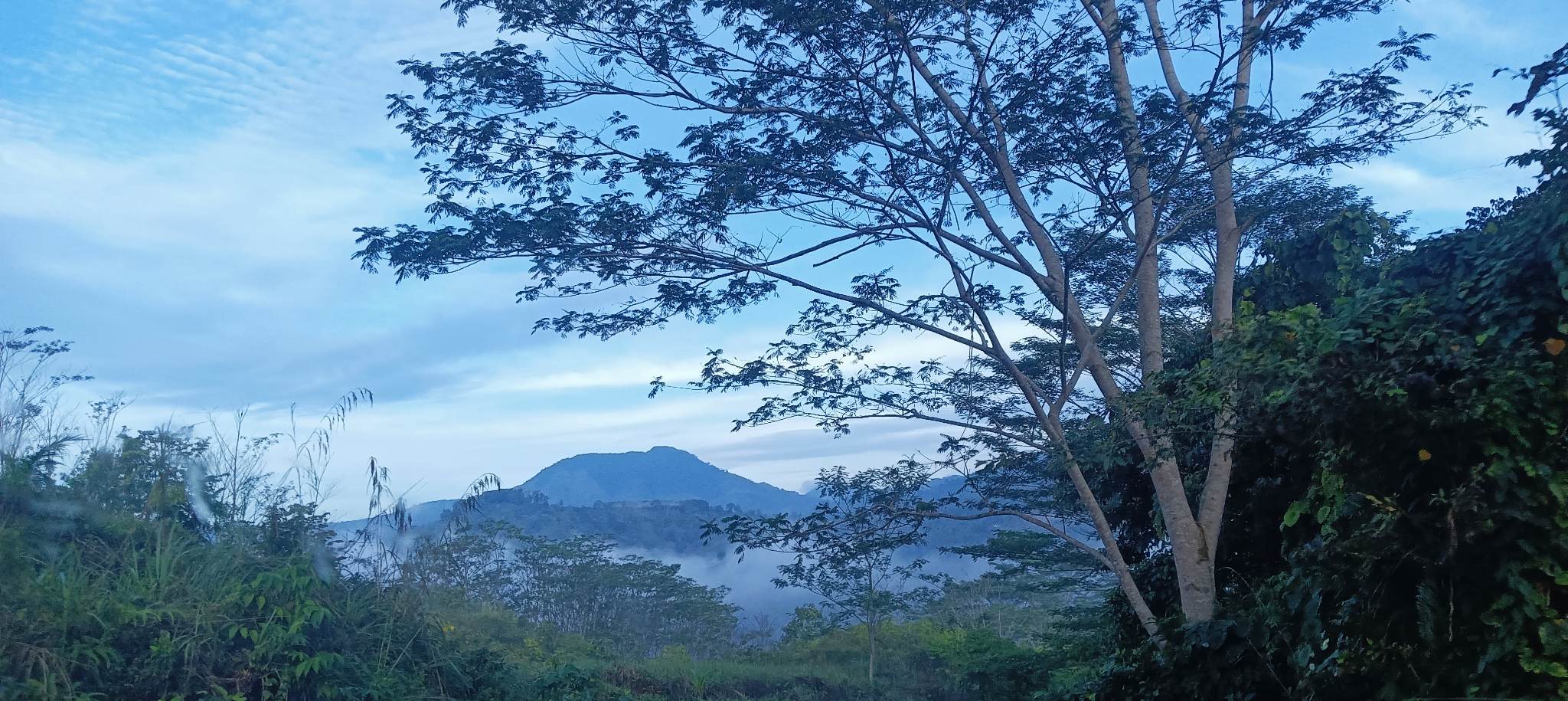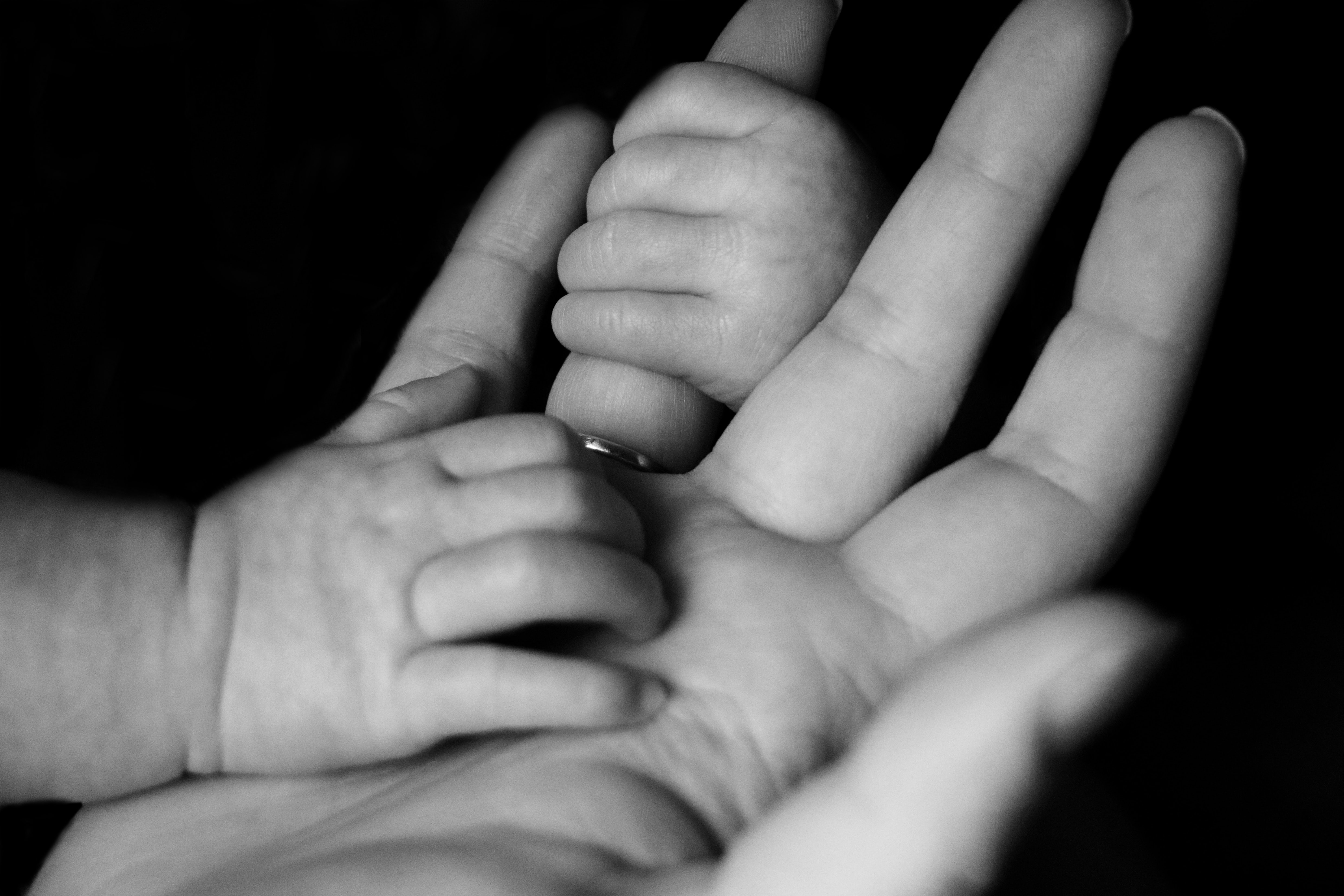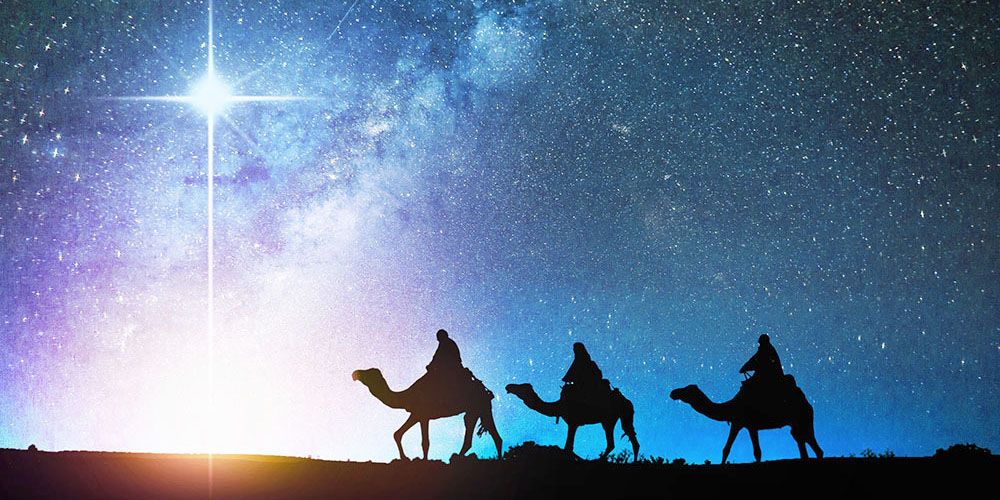“While it may seem small, the ripple effects of small things is extraordinary.” Matt Bevin

It’s been more than a month since I have been caught in the lockdown here in the boondocks of Nanga Nangan, Zamboanga del Sur where the simplicity of life has taught me to live in gentle harmony with nature from the rising of the sun to its setting. Here in this place, I have learned to live one day at a time and to go with creation’s flow of life. For one thing, I have come to appreciate all the more the beauty of waking up before dawn with the loud crowing of the rooster in the hushed silence of the still dark countryside. For every time I walk out of the house towards the barrio chapel, I am always left in constant awe and wonder at the sight of a million stars shining above the vast expanse of the heavens and the moonlight casting its luminous glow over the sleepy hills and valleys. Like precious jewels sparkling in the darkness, they silently speak to me of my timeless connection to Someone much larger than life, to Someone whose unfading love and compassion is made clearly visible to us even when everything else around us is still pitch black.
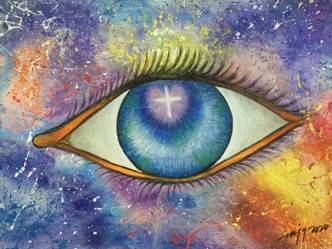
I have also discovered the graciousness of living everyday surrounded by all kinds of animals from the family’s pet dogs Whitey and Koykoy to around sixty chickens, twenty ducks, four goats, two turkeys, two cats and a huge fat pig, not to forget all the fishes teeming in the fish pond and the four cows grazing in the open field! And so by the time I go back to the house after my morning prayer, I can already hear a lively cacophony of animal sounds all hungrily looking forward to their first meal of the day just like me!

Every now and then, I would lend a helping hand to Loloy, the son living in the house who day in and day out never tire of feeding the whole animal family with hog and corn feeds, rice, and all the leftovers we have after every meal. And so we make sure that nothing is thrown to the garbage by putting aside whatever grain of rice and fish bone left to the food container meant for them. At times, I would sweep some fallen corn grains into the open spaces of the the wooden floor knowing that the chickens down under the house would happily feast on whatever bits and pieces that falls to the ground as if manna from heaven!
However, I realized that feeding is the easier part for I found out that the dried corn grains had to be grained the hard way with the use of an old grater made of stone that had been used by the family for many years. This goes without saying that I also tried to grate corn into finer bits before they are mixed with other feed pellets and ready to be given to the poultry. Again it was a tedious task that needs to be done on a regular basis and when the novelty has worn off, it can become a monotonous ritual and one can easily fall into a kind of boredom or forced duty.
And so, in the everyday life where we do things repetitively that can turn into the inevitable humdrum, we are called to be good to the small things, the things that may seem so ordinary and insignificant such as the washing of the dishes, cleaning the floor, watering the plants, putting things in order and feeding the pets especially during these uncertain times of being locked down within the confines of our homes for it is in the small where we discover the revelation of the great. And a mindful living in the now moment is the art of attaining inner peace and harmony that leads us towards the fullness of God’s time. We are therefore reminded to make a conscious effort to change our negative attitudes into something positive and life giving by being patient, cheerful, faithful and generous in our self-giving despite the many odds against us. In so doing, life becomes more purposeful and less burdensome. “If your everyday life seems too poor to you, don’t accuse it, accuse yourself because you have not been strong enough to call up its riches.” (Rainier Maria Rilke)
In the chapter A Theology of Everyday Life of Karl Rahner’s book, The Mystical Way of Everyday Living, he reminds us that those who place their small time into the heart of eternity which they already carry within, will suddenly realize that even small things have inexpressible depths, are messengers of eternity, are always more than what they appear to be, are like drops of water in which is reflected the entire sky, like signs pointing beyond themselves, like messengers running ahead of the message they are carrying and announcing the coming of eternity, like shadows of true reality that are cast over because the real is already very near.
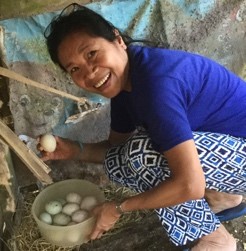
My rustic laidback life of coexistence with the animals surrounding the ancestral home of the Gualiza family have also heightened my sense of creatureliness, that is, an awareness of our affinity with other non-human species as our fellow creature. Hence, making us one with them as creatures of God in the community of life. I can not but affirm this sacred truth because I have developed a sense of affection with my daily companions here who amuses me in many different and peculiar ways with each passing day. And I marvel at the small wonders in them along with the garden that yields a variety of beautiful flowers, fruits and green leafy vegetables.
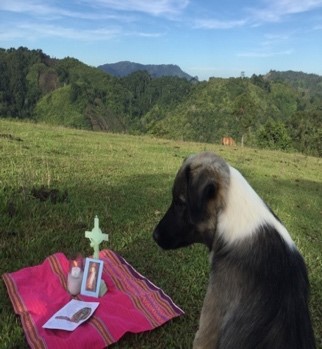
I must say that dogs are really human beings’ best friends for I have found an instant friend and companion in Koykoy as if we have already known each other for some time. He walks with me wherever I go and sits quietly outside the entrance of the chapel every morning while I am at prayer. And on Sundays whenever I climb up the hill to pray together with the family, he is always there sitting around with us facing our makeshift altar in silent reverence and adoration. But like a little boy, he would also feel restless and would start to prance around calling our attention, as if to say, “Hurry up, let’s go home. I am hungry!”
Manny Bautista in his book Living Laudato Si’ points out some issues in relation to the sense of creatureliness by saying that we human beings resent the thought of being called creature or fellow creature of other-than-human species because it equates us to the same creatures that we abuse and exploit. Subconsciously, we look down on them with an air of superiority since Scripture aptly states that God has designated to us human beings the primordial task of stewardship: “When I look at the sky, which you have made, at the moon and the stars, which you set in their places — what are human beings, that you think of them; mere mortals, that you care for them? Yet you made them inferior only to yourself; you crowned them with glory and honor. You appointed them rulers over everything you made; you placed them over all creation: sheep and cattle, and the wild animals too; the birds and the fish and the creatures in the seas.” (Psalms 8:3-8).

Hence, our role as stewards of the earth summons us to be responsible and compassionate in caring for and protecting our nonhuman creatures in order that alongside with them, we are able to praise our Creator in our own distinct ways, they by simply being themselves and fulfilling their sacred purpose here on earth. Laudato Si’ #75 further stresses the importance of a heightened sense of creatureliness by stating that “a spirituality which forgets God as all-powerful and Creator is not acceptable. That is how we end up worshipping earthly powers, or ourselves usurping the place of God, even to the point of claiming an unlimited right to trample his creation underfoot. The best way to restore men and women to their rightful place, putting an end to their claim to absolute dominion over the earth, is to speak once more of the figure of a Father who creates and who alone owns the world.”
From this God perspective and in the light of the ongoing present global pandemic, we have come to realize that no human being is an island and that we all need one another in facing the dark storm we find ourselves in. For no matter how important it is to observe social distancing and self quarantine, still we acknowledge the need to be connected to each other even virtually or otherwise for the simple reason that we are created as social beings and we can never be self-sufficient. All living creatures, we all exist only in dependence on each other, to complete each other and more importantly, to be at the service of each other. Above all, God constantly assures us that we are not alone. He is with us now more than ever in this precarious moment of our history. “Master, Master, We are lost! Then he woke up and rebuked the wind and the rough water; and they subsided and it was calm again.” (Lk. 8:24)
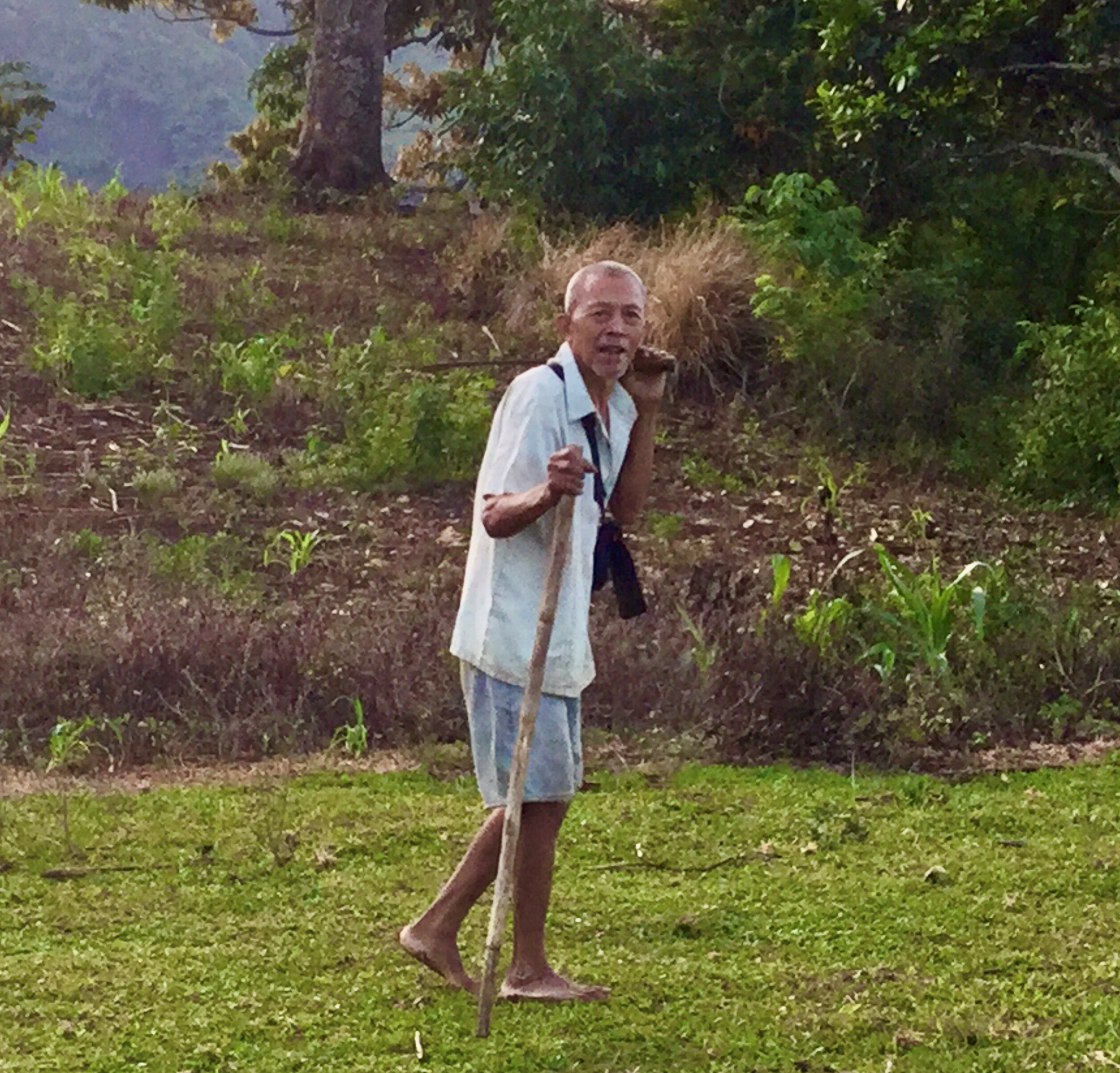
Living here in one of the remotest barrios of Zamboanga del Sur have also renewed my sense of mission and solidarity with the rural poor especially with the Subanen indigenous peoples who until now continue to be marginalized and excluded from mainstream society. The irony is that, despite their abject poverty and deprivation of a more dignified way of life due to the lack of the basic services such as health care, good farm to market roads and public transportation, their faces still shyly exude a sense of inner peace and quiet contentment with what life has to offer them, something that neither money, fame nor power can buy. “Blessed are the pure in heart, they shall see God.” (Mt. 5: 8)
And so, as we journey on through the Easter season, I pray that we will rediscover with childlike awe the small wonders God is gifting us everyday from the rising of the sun to its setting. Like the Subanen children whose face lighted up with unspeakable joy when one day we served them a hot meal on a plate full of rice after they busily went about cleaning the garden and feeding the chickens while we were all away. “I bless you, Father, Lord of heaven and earth, for hiding these things from the learned and the clever and revealing them to little children.” (Mt. 11:25)
Being stuck here in the remote countryside has certainly been a blessing in this juncture of my life’s journey. It has taught me to savor every moment as it comes and to be open to the surprising ways of the God of life and love as we continue to hope in the face of hopelessness that all shall be well in the end. “The wind blows wherever it wishes; you hear the sound it makes, but you do not know where it comes from or where it is going. It is like that with everyone who is born of the Spirit.” (John 3:8)
A Prayer
God of small things,
quiet strength of the weak,
in these times of crisis and despair,
imbue with grace our hollow hearts
full of nothing great
but everything so ordinary
so that they may be transformed
into things of eternal value.
God of small wonder,
present in all living creatures –
the nonhuman species
that exist for your praise and glory,
teach us to be humble stewards
with a sense of gratitude
and appreciation for the gifts
received every day of our lives.
God of love and compassion,
Source of our healing hope,
open the gate of your divine mercy,
send us the fire your Spirit
and renew the face of the earth.
Restore us to new life…
May our tears turn into joy,
and lasting freedom.
Amen.

Marjorie J. Guingona, SAC
April 22, 2020
Nanga Nangan Tigbao, Zamboanga del Sur




